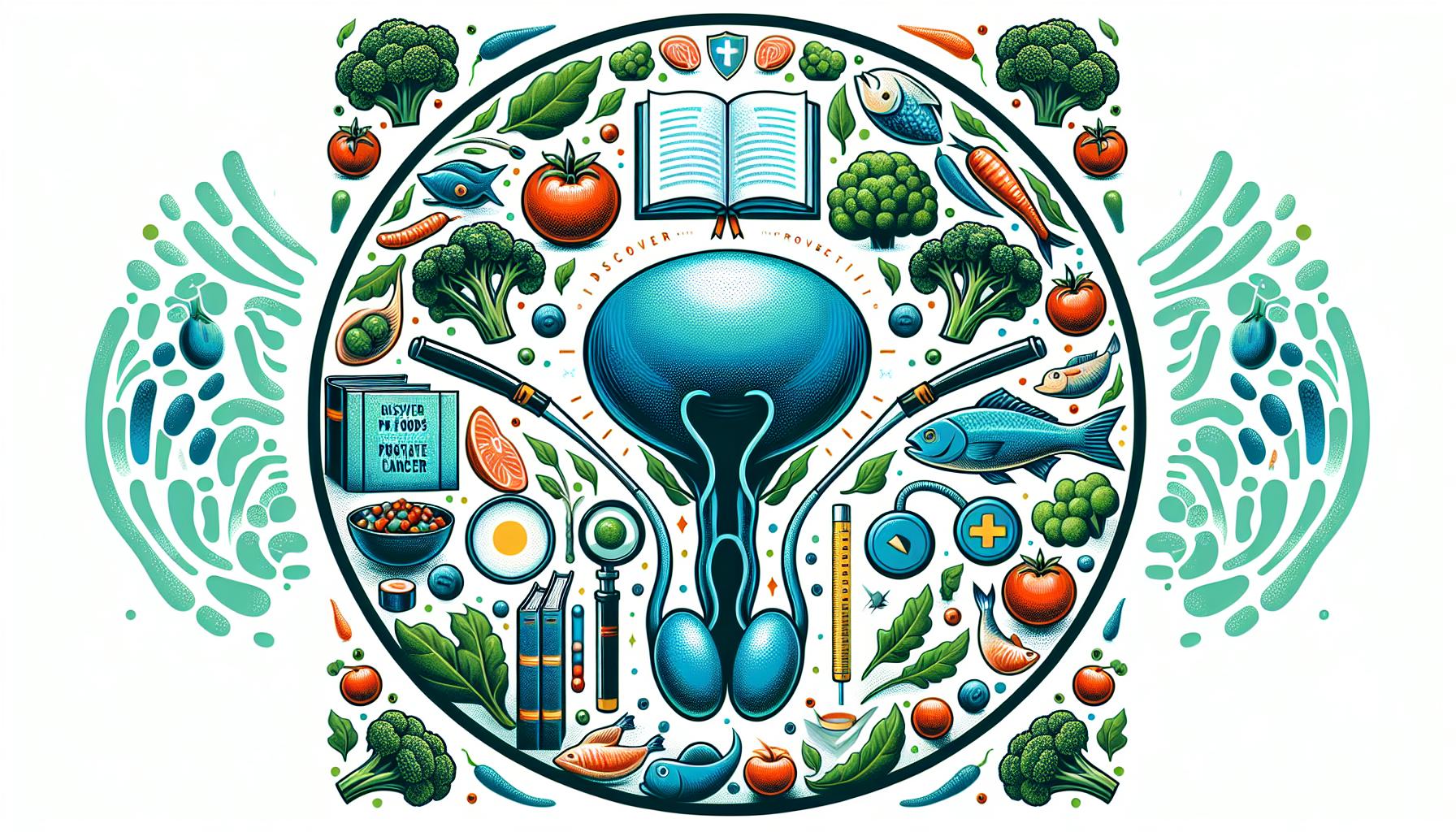Introduction: A Mouthful of Health – Nourishing your way to Prostate Health
When it’s all boiled down, could the secret to preventing prostate cancer be as simple as the food on your fork? Yes, indeed, it could be. Our bodies, through their astonishing biological functions, can translate the nutrition from what we eat into a protective shield against this unwelcomed invader. The overarching question is – What foods might help us fortify this shield? The answer points towards a diet rich in fruits, vegetables, whole grains, lean protein, and low-fat dairy products. This article will delve deeper into the specifics, presenting you with an elaborate gastronomic guide to prevent prostate cancer.
From Farm to Fork: Fruits and Vegetables
Let me paint a picture – a veritable rainbow on our plates. Bright reds, deep purples, glistening greens, vibrant oranges, and cheerful yellows. This aren’t just pleasing to our eyes, but are bountiful in essential nutrients. Fruits and vegetables are packed with antioxidants, flavonoids, and phytochemicals – natural compounds that can reduce inflammation and prevent cellular damage, which can inhibit cancer cells’ growth.
A Luscious Line-up
Start your day with blueberries or raspberries, adorn your afternoon salads with cruciferous vegetables like broccoli, Brussels sprouts, or cabbage. Also, don’t forget the beauty of tomatoes, rich in lycopene, a compound touted for its possible protective effect against prostate cancer.
The Harvest: Whole Grains
Stepping away from the pie in the sky, the best bread and butter of a prostate-cancer-protective diet is whole grains. They are a powerhouse of fibre, taking center stage in protecting against a variety of cancers, including that of the prostate.
Grains and Goodness
Switch your ordinary rice to brown rice, slide a slice of whole wheat bread into your toaster, and let’s not forget about oats – the unsung hero of a hearty breakfast, and you’ll be well on your way of incorporating more whole grains into your diet.
Lean, Mean and Clean: Lean Protein
Putting all our eggs in one basket here, there’s some protein-packed pasture that should not be overlooked. Lean protein sources can help keep those dreaded prostate cancer cells at bay without contributing to weight gain, a significant risk factor.
Protein Power
Skinless poultry, fish, beans, and legumes are your allies here. These foods boast essential nutrients, including omega-3 fatty acids, known for their anti-inflammatory and cancer-fighting properties.
Don’t Despair, Reach for Dairy - Just Make it Low Fat
While high-fat dairy products are off the table, their low-fat counterparts are invited to the party. A bit of moderation here, a touch of substitution there, and you’ll find dairy can still contribute to a cancer-preventive diet.
Dairy Done Right
Switching from full-fat to low-fat or non-fat milk, butter, and cheese, can help you maintain a heathy diet that can put a damper on the progression of prostate cancer.
A Flavorful Ending
In conclusion, it wouldn’t be a stretch to say that our plate is our strongest weapon when it comes to preventing prostate cancer. Generously filled with a myriad of fruits and vegetables, whole grains, lean proteins, and low-fat dairy, we’re not just preventing diseases; we’re promoting general health, and treating our taste buds to a lively fiesta, too.
Frequently Asked Questions
1. Are there foods to avoid to prevent prostate cancer?
Red and processed meats, high fat dairy products, and alcohol are some food items to avoid to keep prostate cancer risk at bay.
2. What role does saturated fat play in prostate cancer?
Saturated fat in diet has been linked with the progression of prostate cancer. Thus, it is advisable to limit its consumption.
3. Is Vitamin E beneficial for prostate health?
Vitamin E, particularly present in fruits, vegetables, and nuts, can contribute to prostate health. However, it may not always prevent prostate cancer.
4. Do supplements help prevent prostate cancer?
While supplements can contribute to overall health, they might not have a direct protection effect against prostate cancer. It’s important to consult a doctor before starting any new supplement regimen.
5. Can a plant-based diet protect against prostate cancer?
Plant-based diets, rich in fruits, vegetables, and whole grains, can help lower the risk of many forms of cancers, including prostate.


